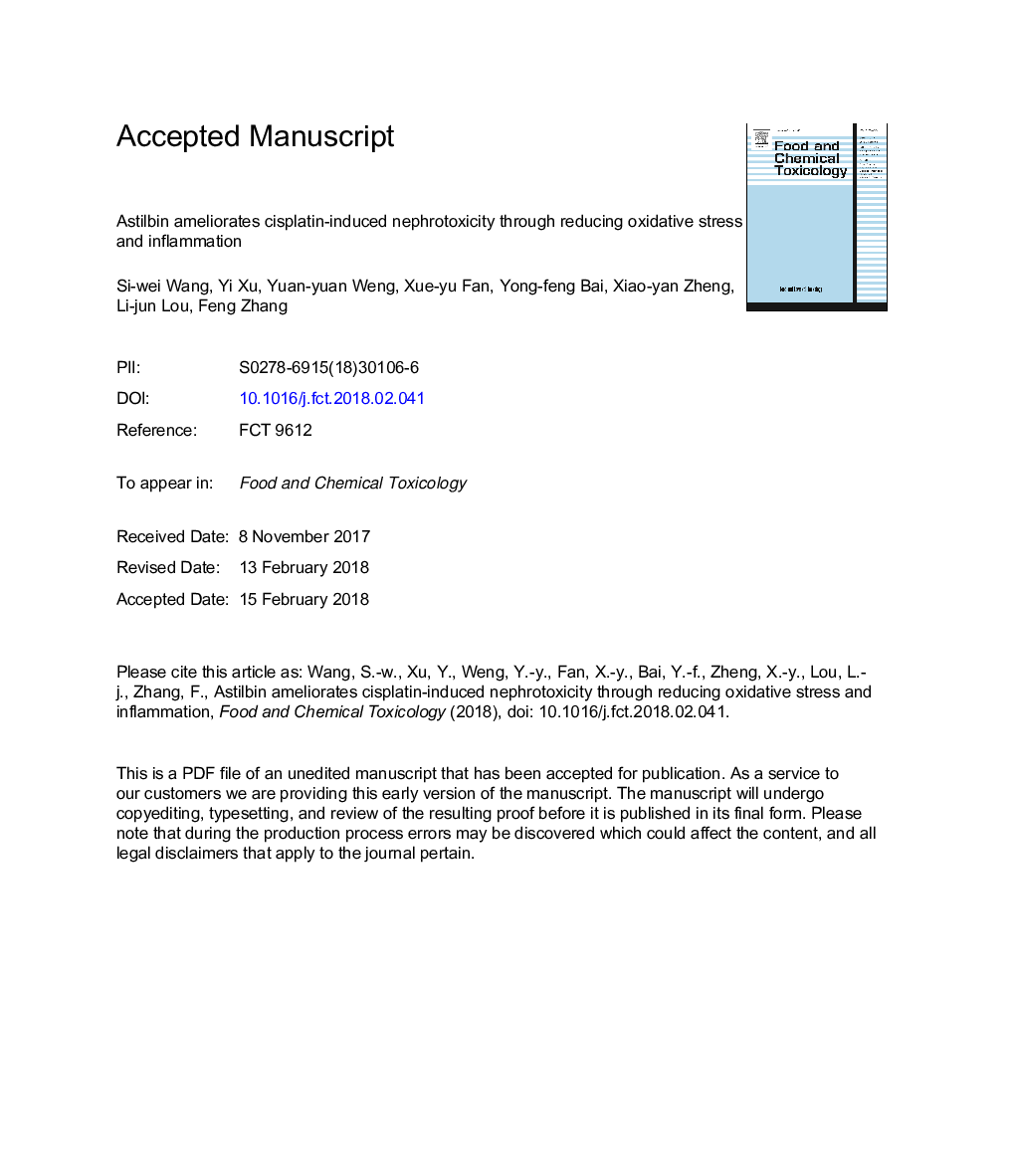| Article ID | Journal | Published Year | Pages | File Type |
|---|---|---|---|---|
| 8547896 | Food and Chemical Toxicology | 2018 | 28 Pages |
Abstract
Oxidative stress and inflammation are considered to be the main pathogenesis of cisplatin nephrotoxicity. Astilbin, a flavonoid with anti-oxidation and anti-inflammation function, has been used to treat heavy metal induced kidney injury. In this study, we investigated the protective effects of astilbin on cisplatin-induced nephrotoxicity and its underlying mechanisms. Our results showed that astilbin markedly inhibited cisplatin-induced cell apoptosis and recovered cell growth. Astilbin significantly decreased reactive oxygen species (ROS) accumulation and alleviated ROS-induced activation of p53, MAPKs and AKT signaling cascades, which in turn attenuated cisplatin-induced HEK-293â¯cell apoptosis. Astilbin effectively enhanced NRF2 activation and transcription of its targeting antioxidant genes to reduce ROS accumulation in cisplatin-induced HEK-293â¯cells. Furthermore, we found that astilbin obviously suppressed tumor necrosis factor alpha (TNF-α) expression and NF-κB activation, and also inhibited the expression of induced nitric oxide synthase (iNOS) and cyclooxygenase-2 (COX-2). Finally, we confirmed that the effect of astilbin to improve renal oxidative stress and inflammation in cisplatin induced acute nephrotoxic mice. In conclusion, our study suggests that astilbin could ameliorate the cisplatin-induced nephrotoxicity by reducing oxidative stress and inflammation.
Related Topics
Life Sciences
Agricultural and Biological Sciences
Food Science
Authors
Si-wei Wang, Yi Xu, Yuan-yuan Weng, Xue-yu Fan, Yong-feng Bai, Xiao-yan Zheng, Li-jun Lou, Feng Zhang,
